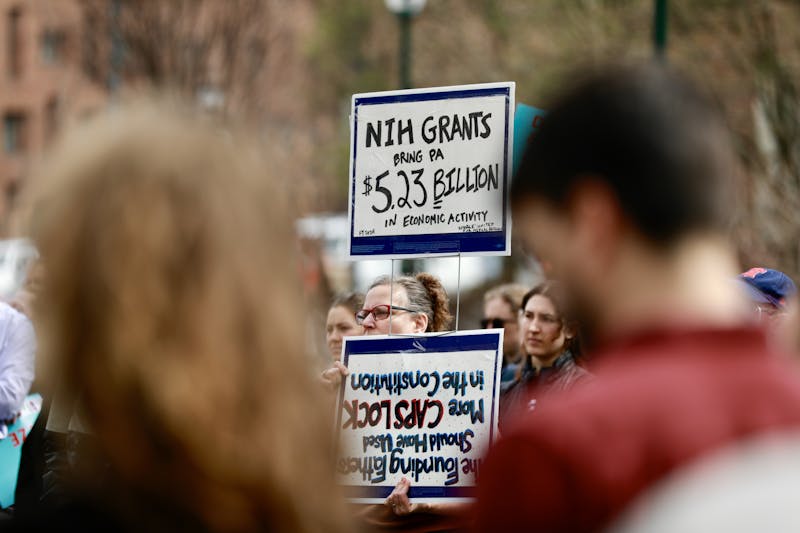I'm not sure I'll ever be wholly comfortable letting a writer label my generation. Granted, there are a few who have shown a knack for it over the years; Scott Fitzgerald and Jack Kerouac were at least decent at the job before they truly found the bottle.
That said, with periodicals out there aimed at every demographic -- human, canine or feline -- there always seem to be an overabundance of young magazine writers eager to play the role of CHAGM (a coinage of mine standing for Chief Holy Arbiter of Generational Monikers). At the behest of these knuckleheads, such meaningless labels as Generation Y and Z have made their way, at least fleetingly, into our cultural discourse.
A few months ago, David Brooks, a conservative-leaning journalist who made a splash with his recent book Bo Bos in Paradise, published a piece in the Atlantic Monthly entitled "The Organization Kid." The article is mildly condemning at points, but Brooks mainly acts like a good anthropologist through most of it.
He heads to Princeton, like Margaret Mead to the South Seas, to document the habits and spirit of the current generation of students at elite American universities. As he phrases it, he goes out "to see what the young people who are going to be running our country in a few decades are like."
What Brooks puts together after his fieldwork at Old Nassau is a chilling picture of college students in metaphorical gray flannel suits. According to his analysis, we current matriculants tend to be overworked, rule-following, politically apathetic, preprofessional, clean-shaven parent lovers that just want to get ahead. As he phrases it, "They're not trying to buck the system; they're trying to climb it, and they are streamlined for ascent."
While I find it easy to dismiss most attempts to distill a generation into a simple label as misguided and too cute to hold water, "The Organization Kid" isn't quite so readily dimissable. Brooks' moniker, as inherently simplistic as it is, hits close to home.
Though Penn is certainly not Princeton, its preppier (believe it or not) neighbor across the Delaware River, I can't help but notice a number of marked continuities between the sort of person Brooks outlines in his article and the kind of undergrad one often finds here in University City.
I see shades of the Organization Kid up and down Locust Walk, and I can see shades of him in me. It's an imperfect label, yes. But it details a sort of personality -- a pathology, if you will -- that deserves our consideration.
It's because I think that this issue -- whether we are streamlined for goodie-goodie success and why we might be that way -- is so important that I'll devote a number of columns this semester to it, in one way or another. Brooks got me thinking, and I really want to mine the topic before I try to forget it.
Using what we know, I can at least provide a rough sketch of what our organization kids might look like if they were to exist at Penn.
They would enter college after a harrowing admissions process. At 17, they'd already be well versed in the art of self-marketing, having molded their teenage experiences into a pretty package -- pink bow, personal statement and all.
They'd have their fun at school, drinking two days a week and cutting class on the first sunny day in April, but they'd really have very little time to just bum. They'd make breakfast dates with friends just so they get to see them. They'd be perpetually tired, but they'd never go to sleep before 2 a.m.
Always mindful of the scary but real possibility of living in American poverty without health care, at least two cars or a Colonial home, these kids would make sure they'd get the grades. They might talk big ideals now and then, but most of the time, their eyes would just be peeled on the next step -- graduate school, interviews, whatever. They would know their parents made a huge investment in them, and they would never do anything to endanger that substantial start-up capital. Hell, they'd even like their parents.
As for politics, they'd be more wryly cynical than anything else. They might sign a petition or even join a protest, but they'd never get arrested or anything. Things like that go on your permanent record.
Now I'm not saying these folks would be guilty of any sin; they might be living life how it ought to be lived. That said, there would be no doubt that their lives -- their worldviews -- would be shaped by the contours of the American culture that's nurtured them. They'd be caught somewhere in the middle between the cash nexus, liberal parenting, globalization, college funds, early admission policies, standardized tests and strong coffee.
They'd be products of their environment. And they might even sound like somebody you know.
The Daily Pennsylvanian is an independent, student-run newspaper. Please consider making a donation to support the coverage that shapes the University. Your generosity ensures a future of strong journalism at Penn.
DonatePlease note All comments are eligible for publication in The Daily Pennsylvanian.







